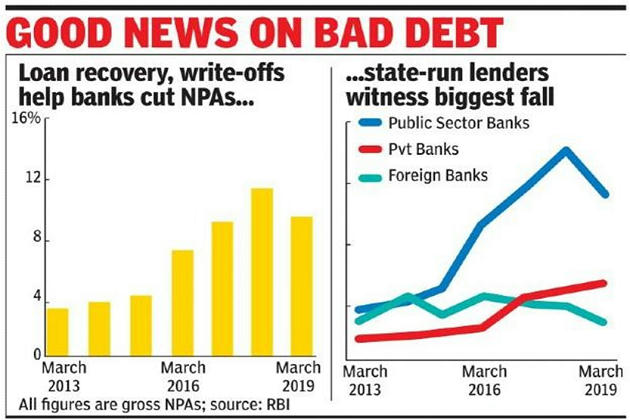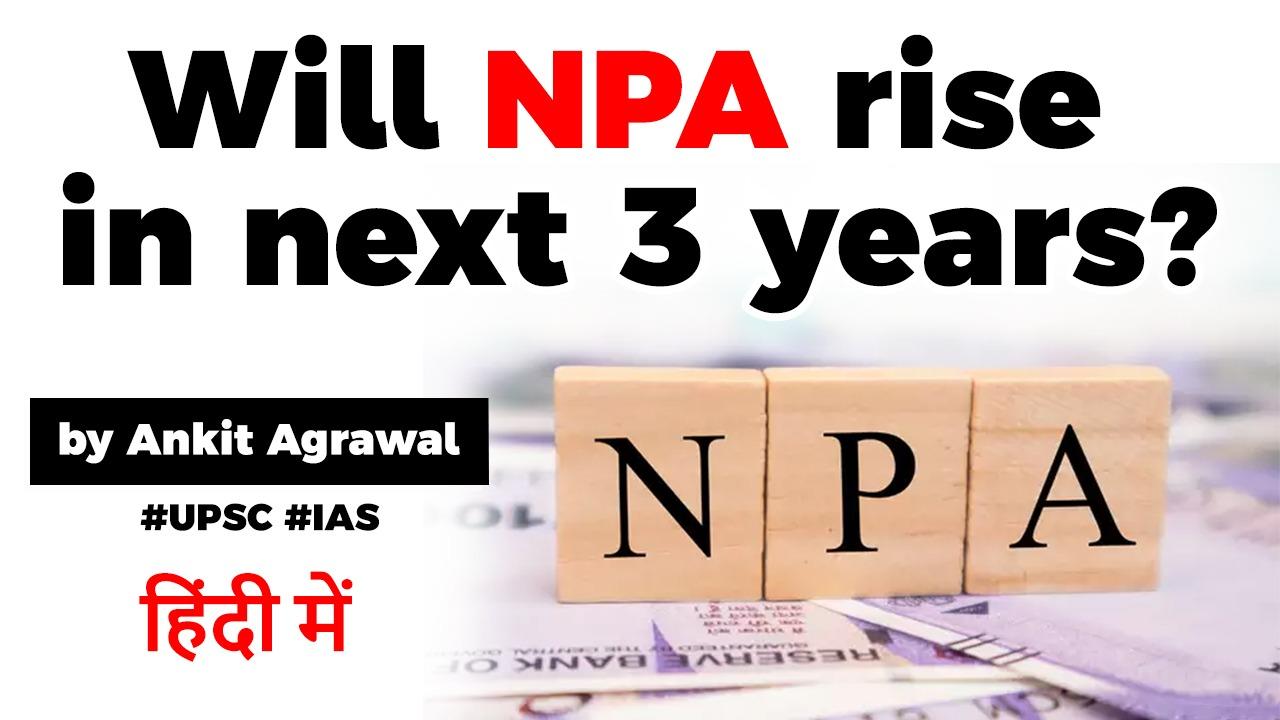Table of Contents


- A study of top 500 private sector companies by India Ratings & Research.
- These 500 debt-heavy borrowers have an outstanding loan book of Rs 39.28 lakh crore.
- Out of this, the existing default amounts to Rs 7.35 lakh crore loans.
- The size of corporate loan book stands at around Rs 64 lakh crore.
- In next three years if the pace of economic expansion doesn’t pick up sufficiently,
- An additional 4% of this amount, translating roughly into Rs 2.54 lakh crore could tip into default.
WHAT IS THE GDP ASSUMPTION?
- The predictions are based on the assumptions of 6% average real GDP growth in FY21 and FY22, with input cost not rising more than 4% and rupee not depreciating by more than 5%.
- Even if the average GDP growth rises to 7% over the same period, the incremental slippages could still be around Rs 1.98 lakh crore.
WHY THE DEFAULT IS RELATED TO GDP?
- The problem emanates from the inability of corporates to deploy their funds productively.
- The share of productive assets in the system has gone down sharply as incremental debt continues to be used to fund losses.
ARE DEFAULT & NPA SAME?
- A default does not necessarily mean that it would translate into non-performing assets.
- According to Reserve Bank of India’s new rule, companies that delay in loan repayment by a single day are considered defaulters.
WHAT IS NPA?
- A non performing asset (NPA) is a loan or advance for which the principal or interest payment remained overdue for a period of 90 days.
IMPACT ON ECONOMY?
- The default is likely to result in increasing the credit
- It will also put banks’ profitability under more
- Thus affecting the credit cycle.
MOST VULNERABLE SECTORS
- Iron & steel,
- Residential real estate,
- Engineering, procurement & construction (EPC),
- Conventional power generation,
IS THIS RESEARCH CREDIBLE?
- The firm had conducted a similar analysis in 2016 & said that the predictive ability of the analysis was very high.
- Around 67% of the extremely vulnerable issuers actually defaulting since then.
;
Latest Burning Issues | Free PDF
























 WhatsApp
WhatsApp